In a world transformed by immediate digital connectivity, physical nearness—proximity—has never been more critical to crafting solutions and creating lasting social change. “Problems are not solved in isolation,” Stephan Chambers of the London School of Economics reminded the nearly 2,000 social entrepreneurs and innovators gathered in Oxford for the opening of the 15th Skoll World Forum. From the struggle for gender and racial equality to the power of proximity in the galvanizing collective will to confront climate change, the opening plenary crystalized the themes of the week ahead.
“We have to be willing to do uncomfortable things, to do inconvenient things—that’s when the world changes,” said Bryan Stevenson of the Equal Justice Initiative, rousing the crowd with a call to act with hope.
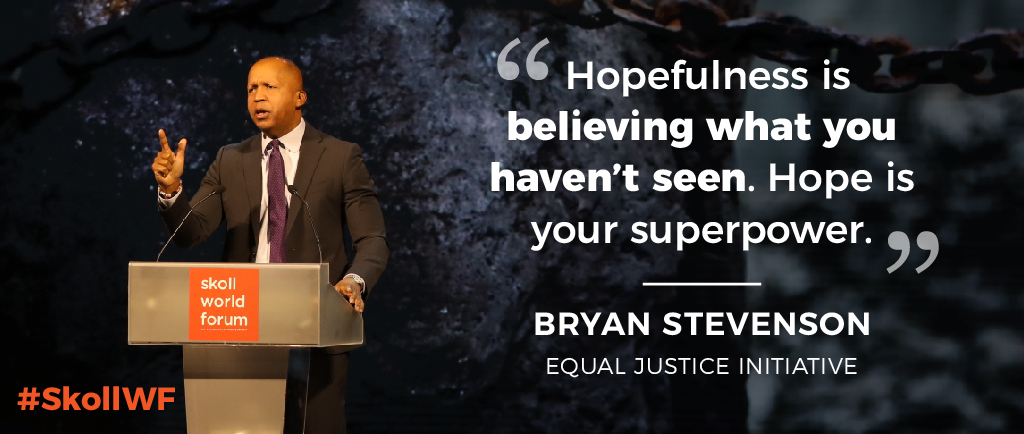
Accepting this year’s Skoll Global Treasure Award, Former U.S. President Jimmy Carter insisted that close proximity to those with whom you disagree is a prerequisite to lasting peace. It also requires more representation from women and minorities. “We can move towards peace if more women are in Parliament or in the presidency,” he said in conversation with the Skoll Foundation’s Sally Osberg.
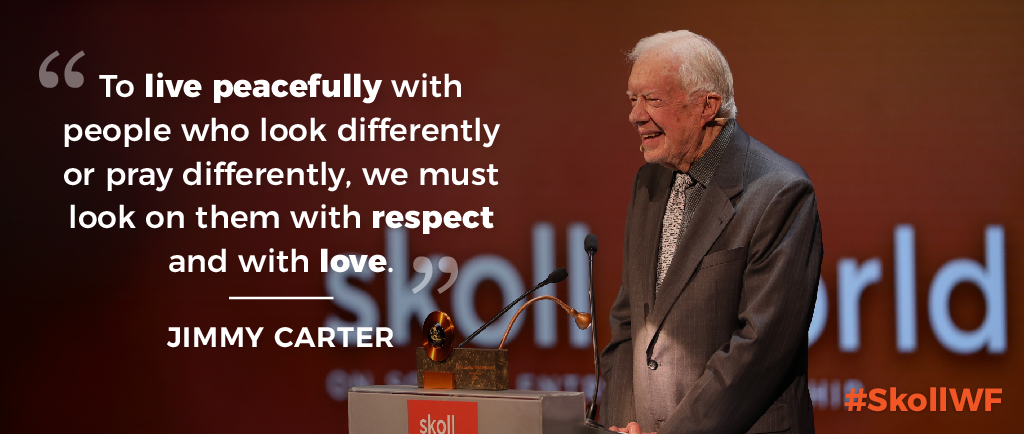
Phumzile Mlambo-Ngcuka of UN Women echoed President Carter’s sentiments in her remarks on the rising tide in the struggle for gender inequality. “We need everybody to be part of finding the solution,” she said. “We can’t leave the next generation in this situation.”
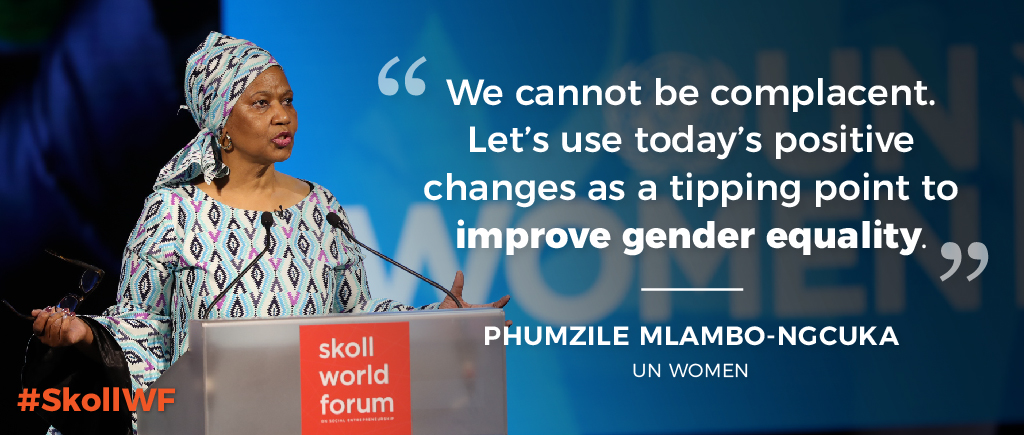
Christiana Figueres of Mission 2020 joined Tara Houska of Honor the Earth in a conversation about the critical need for inclusivity in climate action—a cause around which we all must unify. “I would like to burst the bubble that addressing climate change is someone else’s problem,” said Figueres.
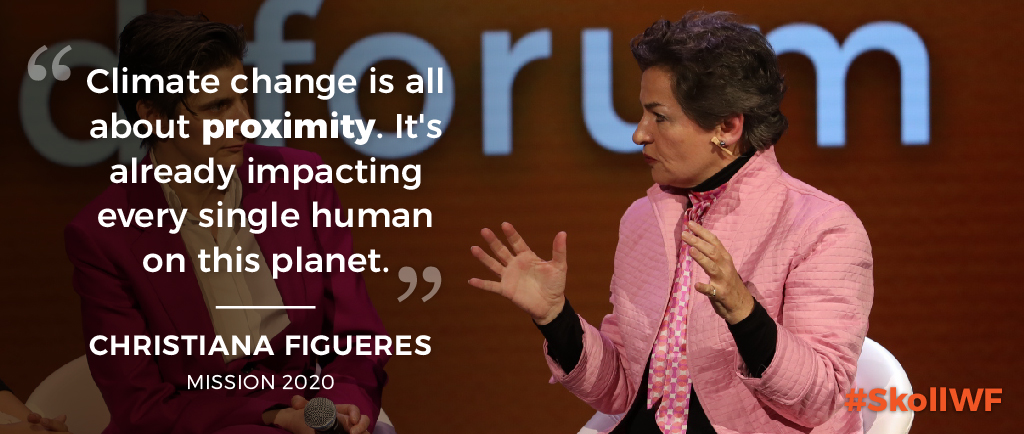
“Indigenous people are impacted first and worst by climate change. We are all in this together, my problems are your problems,” said Tara Houska. “We can stand for a unified cause, and that cause is humanity.”
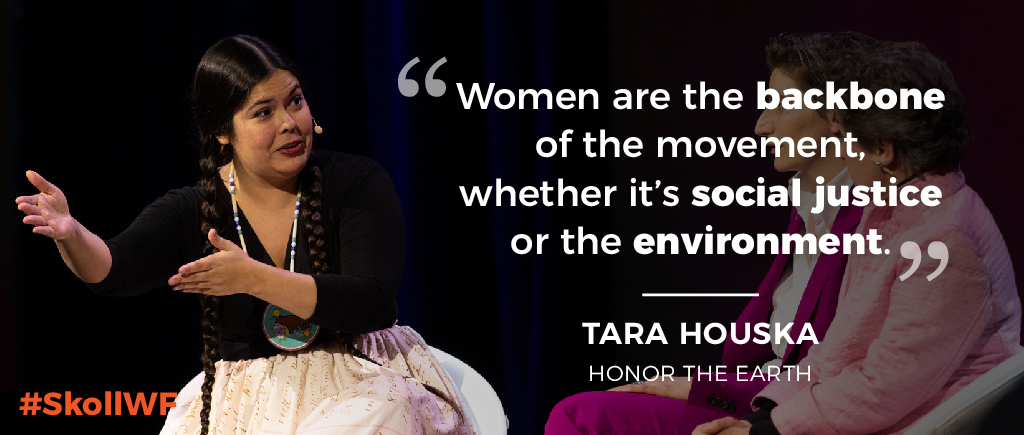
“Proximity with our fellow humans awakens our empathy and compassion as well as our imagination and creativity,” the Skoll Foundation’s Sally Osberg told the crowd at Oxford’s New Theatre before introducing the six winners of the 2018 Skoll Awards for Social Entrepreneurship. “Neuroscience has shown that we are, in fact, wired to exist in harmony with each other.”
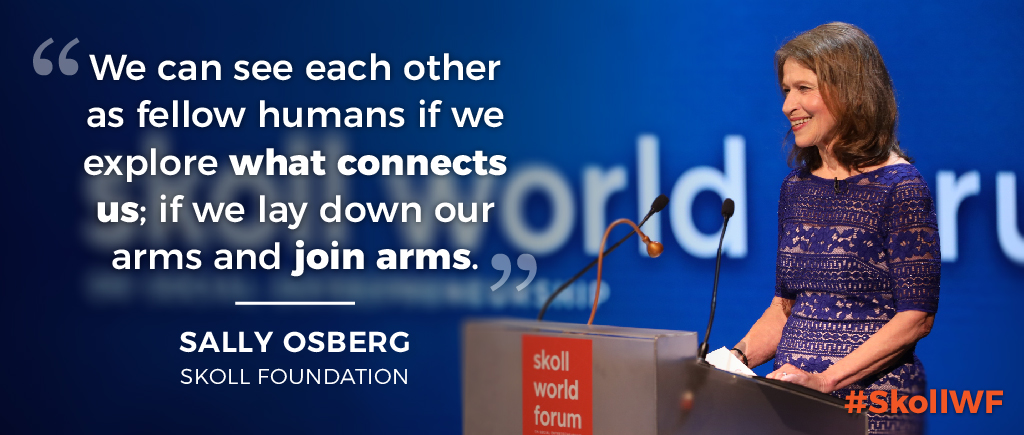
The six organizations and leaders we celebrated this evening have been moved by the soul-destroying misery of injustice, violence, poverty, and exclusion. Standing alongside the suffering and marginalized, together they envision what should—and can—work.
Seventy percent of Africans make their living from agriculture, but most smallholders still don’t have adequate food through the year. Anushka Ratnayake and myAgro pioneered a mobile layaway microsavings model specifically to boost smallholder yields and income. Watch Anushka’s full remarks.
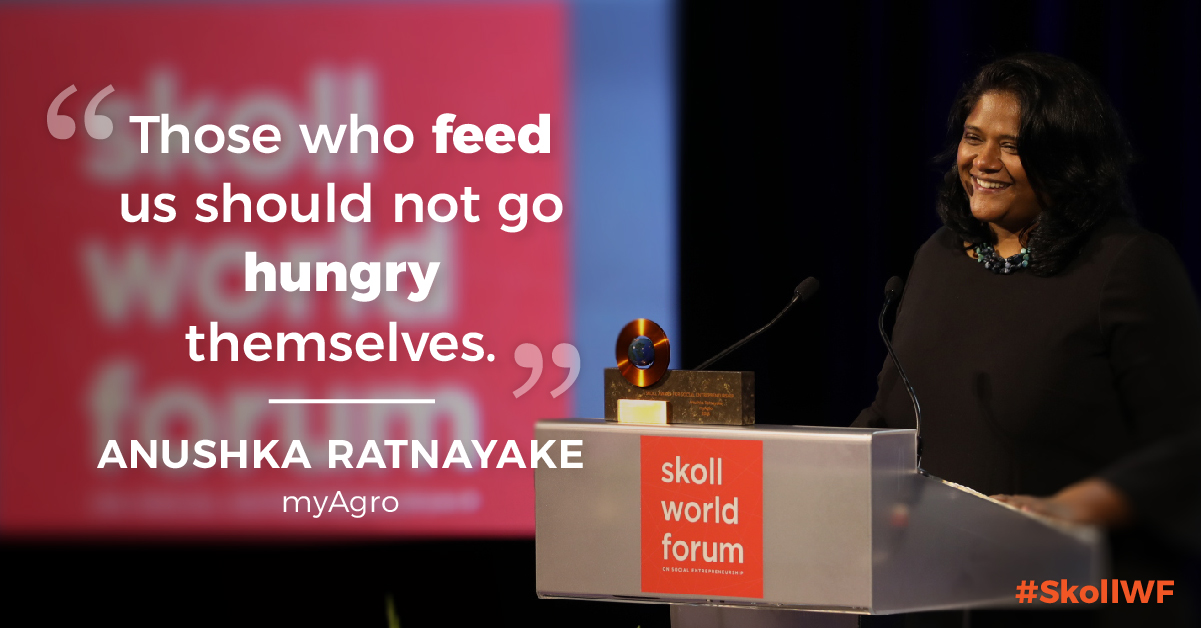
The lasting toll of sexual assault and harassment is the everyday fear, the tax of having to be constantly careful. Jess Ladd and Callisto dismantle barriers to reporting sexual assault with its powerful online platform. Watch Jess’ full remarks.
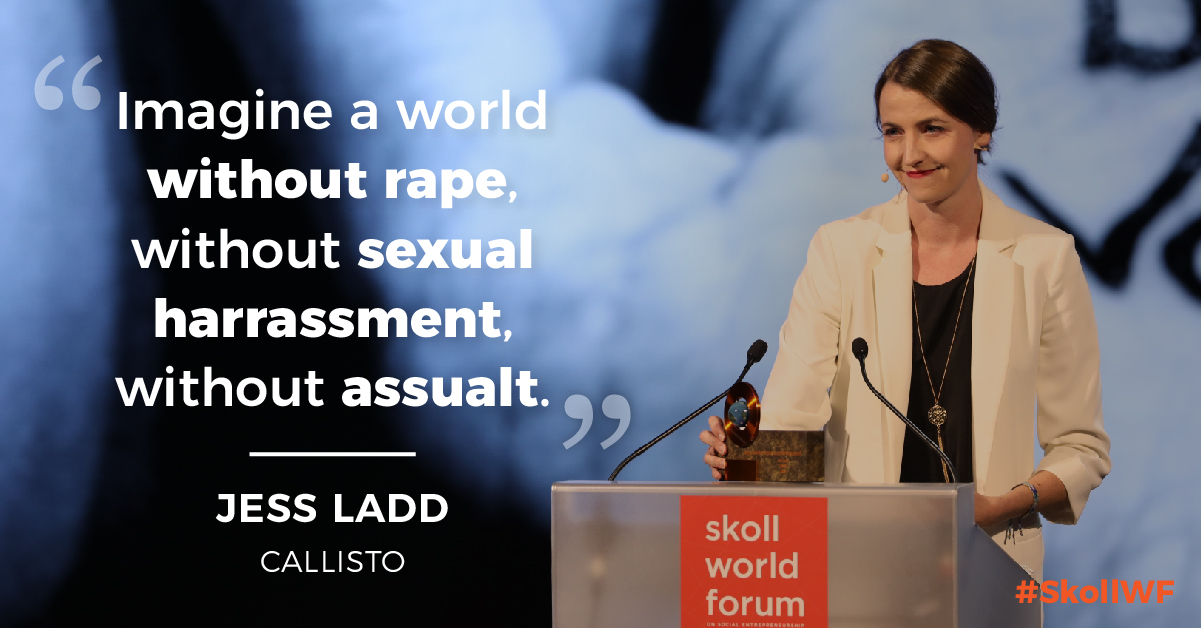
A light bulb. A water pump. A clean cookstove. These simple products can transform lives. Lesley Marincola and Angaza put these technologies within reach of the very poor with its pay-as-you-go platform. Watch Lesley’s full remarks.
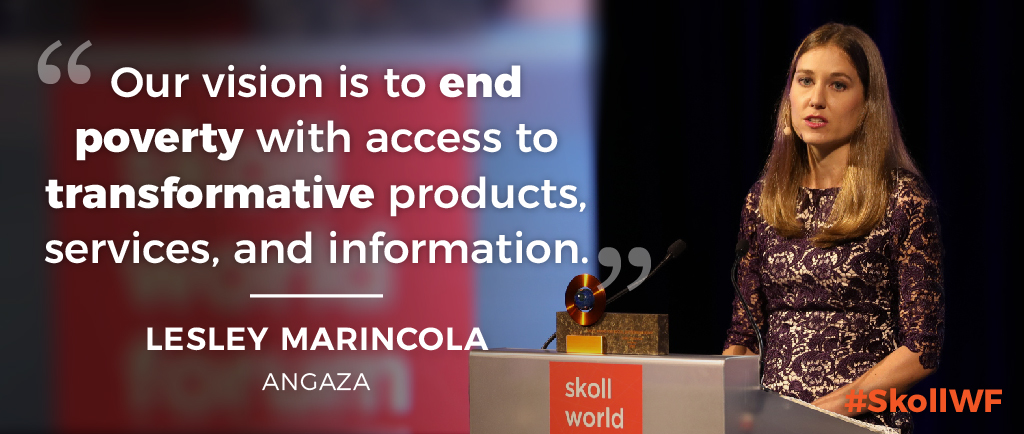
Half of Americans will need food stamps at some point. What if you could apply in just seven minutes on a mobile phone? What if every family in the country who was eligible actually got this help? Jennifer Pahlka and Code for America harness technology to close the gap. Watch Jennifer’s full remarks.
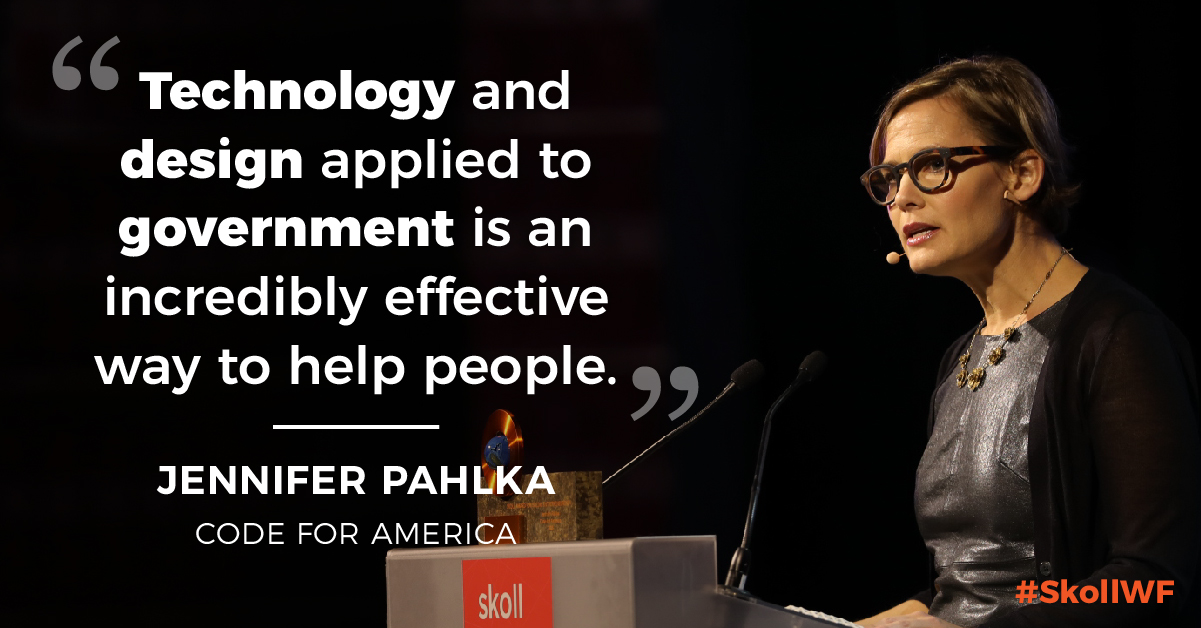
Billions without access to the healthcare they deserve struggle to live their fullest life. We have the medicines to save and improve lives, but we don’t always get there. Barbara Pierce Bush and Global Health Corps are cultivating the next generation of leadership to get us there. Watch Barbara’s full remarks.
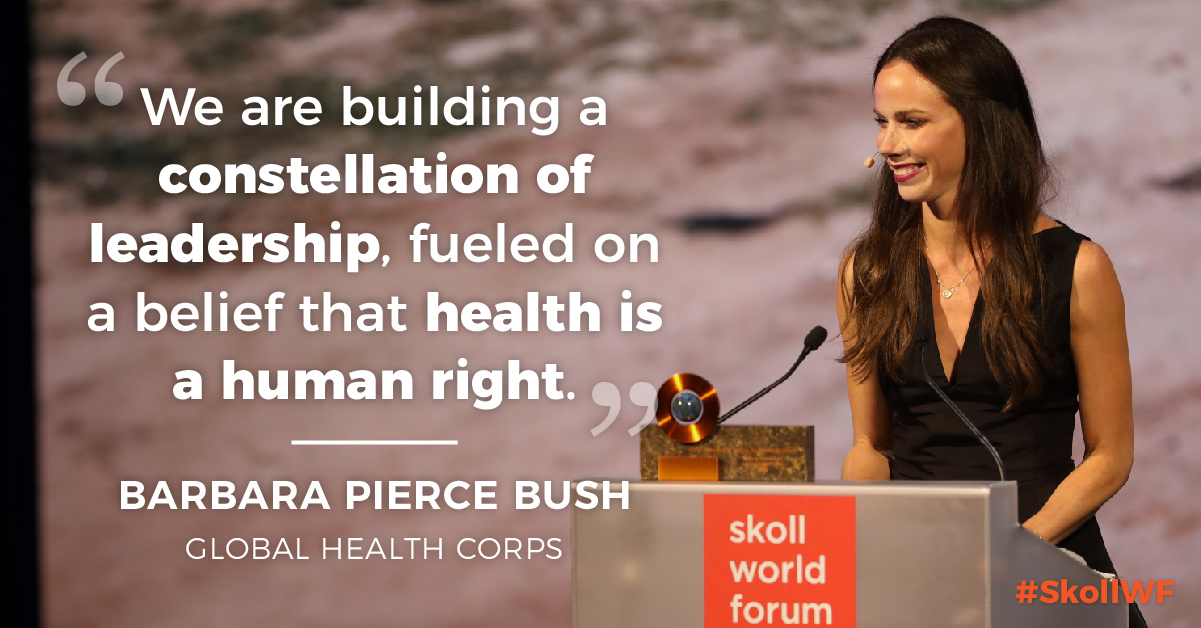
Well over a billion people worldwide have no access to energy, and burn billions of dollars in kerosene to light their homes. Harish Hande and SELCO have created social and environmental sustainability for the poor in India with a decentralized delivery system for solar energy. Watch Harish’s full remarks.
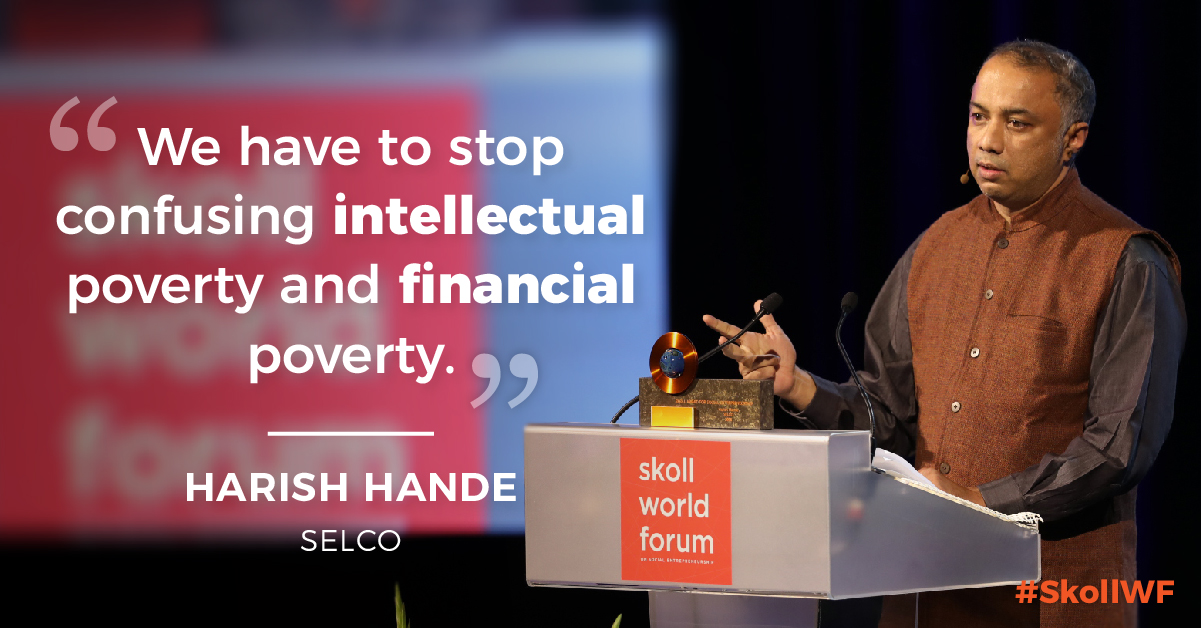
Skoll Week concluded in Oxford with a hopeful exploration of our proximate future. From the promise of space travel to a bold vision for a “moonshot for education,” delegates contemplated the potential for emerging technologies to thread us closer together, to catalyze the radical and unconventional solutions that will build a more just, equitable, and inclusive world.
Gwynne Shotwell of SpaceX offered her vision of a public imagination harnessed by the possibility of space travel. “Think big,” she said. “Even if you fall short, you’ve probably achieved something extraordinary.”
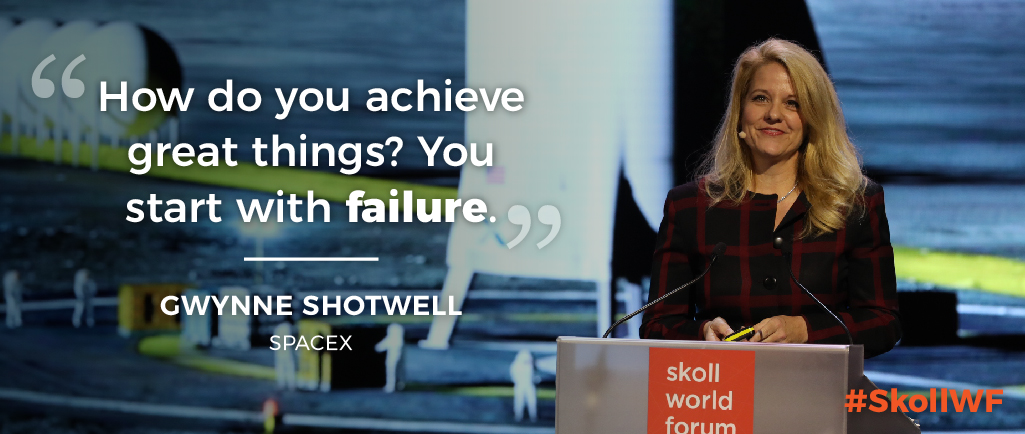
Fred Swaniker of the African Leadership University’s mission to convert one billion people into problem solvers is not about saving Africa, it’s about saving the world. “There’s an incredible energy source that lies in Africa, and it lies in our youth,” he said.
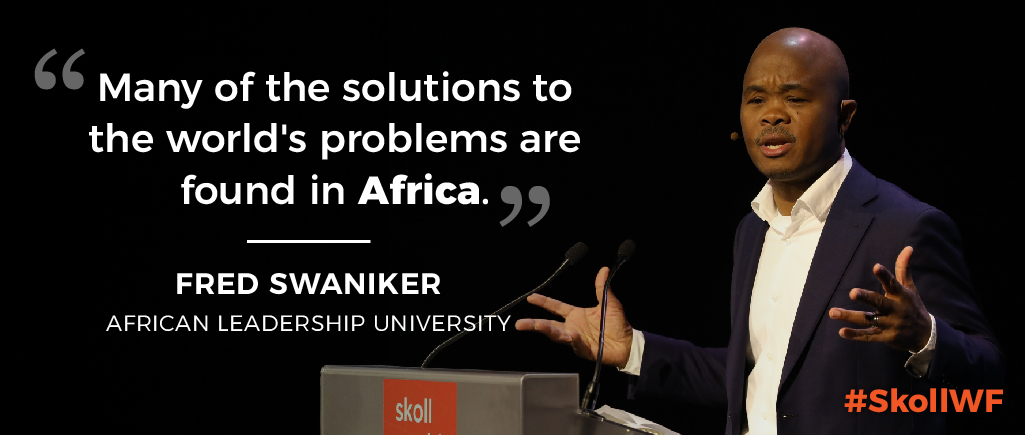
Dan Ariely of the Center for Advanced Hindsight explored the need for innovative approaches to behavior change, the kind of unconventional thinking required to achieve the ambitious Sustainable Development Goals.
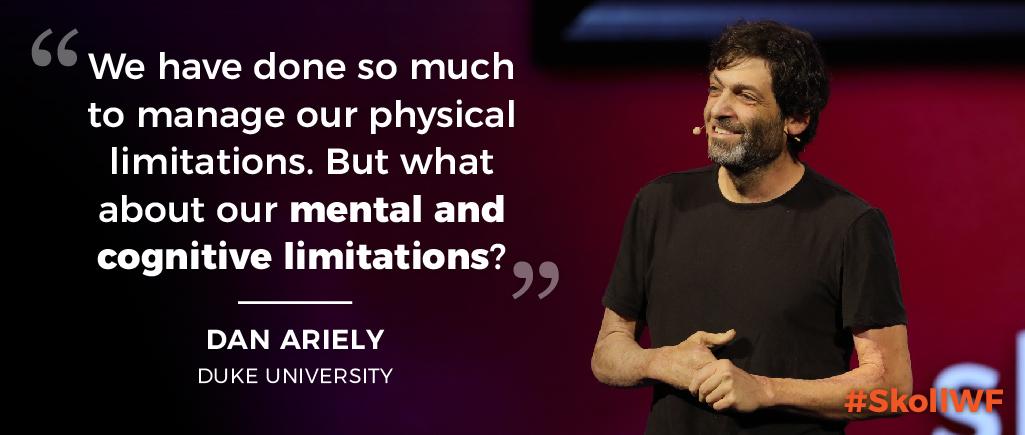
With eight of nine band members of Haiti’s Lakou Mizik blocked from Oxford by the tangle of the visa process, Aloe Blacc’s band joined Steeve Valcourt to deliver a marvelous performance, a fitting punctuation on an inspiring week. The power of proximity never sounded so sweet. Enjoy the rhythms of Lakou Mizik here, here, here, and here.
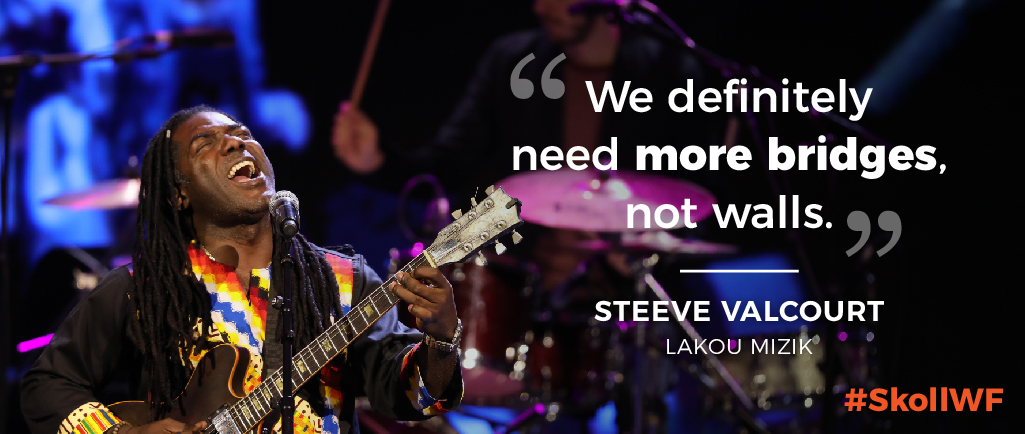
Over on our YouTube page, you’ll find videos of all sessions, an impressive archive of invigorating discussions ranging from topics like blockchain for good and farmer-centered design, to refugee integration and democracy in crisis.